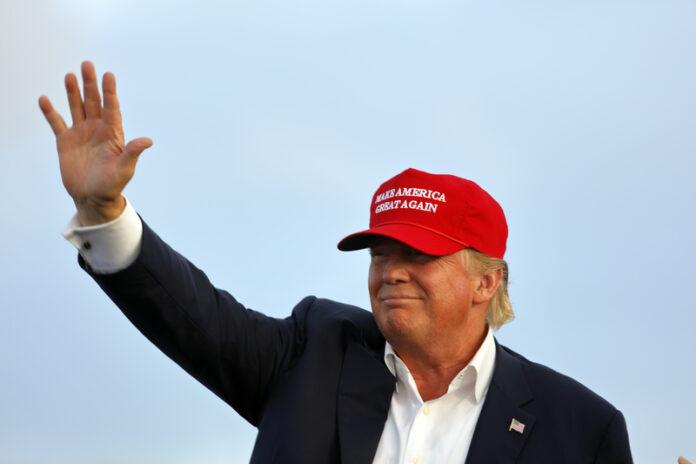On Saturday, September 7, 2024, former President Donald Trump held a rally in Mosinee, Wisconsin, captivating a crowd of around 15,000 supporters. Arriving on his private jet, famously known as “Trump Force One,” he took the opportunity to discuss what he sees as threats to free speech in the United States and to critique the current administration’s policies.
The Republican presidential nominee, Trump, highlighted the necessity of preserving free speech, declaring, “They’ve taken away your free speech, and the fake news threat is a threat to this country.” He pledged to take definitive steps if he is victorious in the election, including the introduction of an executive order “banning any federal employee from colluding to limit speech” and the termination of “any federal bureaucrat who engaged in domestic censorship under the Harris regime.”
Hosted at the Central Wisconsin Airport, the rally marked Trump’s fourth visit to Wisconsin during the ongoing campaign period. However, it was his inaugural visit to this highly conservative, primarily rural sector of the important battleground state. Wisconsin has been a key focus for both leading parties, with four out of the six most recent presidential elections determined by a margin of less than one percentage point.
Trump’s remarks concerning free speech and media criticism follow a critical op-ed authored by New York Times publisher A.G. Sulzberger, which was published in the Washington Post just two days before the rally. In his article, Sulzberger cautioned that “Trump stands out for his aggressive and sustained efforts to undermine the free press.” He also advised Americans to brace for Trump’s potential utilization of an anti-media “playbook” if he is elected in November.
Speaking to the crowd, Trump defended his views on media relations, stating, “When you’re a politician…, and you happen to be a Republican or somewhat conservative, they write just the opposite of what the facts are, and if you are driving a cab, if you’re an accountant, if you are a lawyer, if you are something other than that, you don’t know the details.” He continued, “When we know the facts, and the story gets written the exact opposite of what it is, you start to lose faith in the press.”
Trump also used the rally to address other critical campaign issues, such as immigration and border security. He condemned the Biden administration for their perceived lenient border policies, associating them with increased crime rates and a strain on taxpayer funds nationwide.
The significance of Trump’s visit to Wisconsin underlines the crucial role the state plays in the forthcoming election. Both he and his Democratic rival, Vice President Kamala Harris, have visited the state frequently this year. Polls taken after President Biden’s decision to withdraw from the re-election race in July indicate a virtual tie between Trump and Harris among Wisconsin voters.
The impact of Wisconsin in the electoral context is immense. The Democrats view it as a vital “blue wall” state. In the 2020 election, Biden won Wisconsin by a slim margin of just under 21,000 votes, while Trump had a victory margin of almost 23,000 votes in 2016.
The emphasis on free speech and media relations at the rally mirrors the ongoing strife between Trump’s campaign and various media outlets. Throughout his previous term and current campaign, Trump has frequently had disputes with journalists and media organizations, often labeling unfavorable coverage as “fake news.”
The Mosinee rally also saw Trump making several ambitious pledges, including resolving the Russia-Ukraine war before taking office and disbanding the Department of Education. These promises align with his campaign’s strategy of presenting himself as a transformative figure capable of implementing dramatic changes to government policy and international relations.
As the campaign intensifies, Trump’s discourse on free speech and media relations is expected to remain a central theme. His vows to safeguard free speech and reshape media interactions, if elected, starkly contrast warnings from individuals like Sulzberger about potential threats to press freedom under a second Trump administration.
The Mosinee rally, with its fervent reception and Trump’s assertive messaging, sets the tone for what is likely to be a closely observed and intensely contested election in Wisconsin and nationwide. As both campaigns increase their efforts in key battleground states, the topics of free speech, media relations, and government transparency are likely to significantly influence voter perceptions and ultimately, the outcome of the 2024 presidential election.

